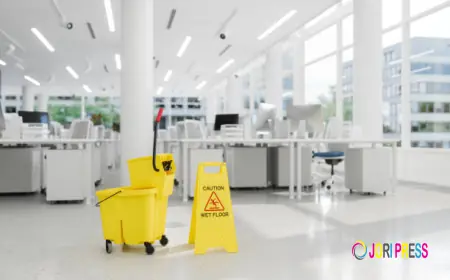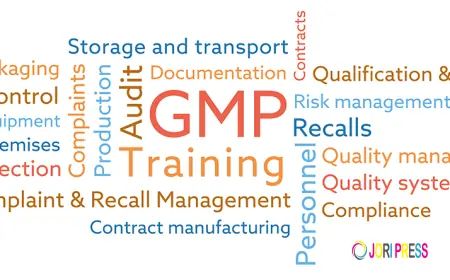8 Features That Make A Fire Detection System Ideal For Large Buildings

When it comes to protecting large buildings, whether commercial offices, hospitals, warehouses, or apartment complexes, having a reliable fire detection system is not just a regulatory requirement; it’s a life-saving necessity. Large spaces come with greater risks, more potential ignition points, and higher stakes. That’s why it’s crucial to choose a fire detection system built specifically to handle the complexities of such environments.
If you're evaluating fire detection systems in Henry County, this guide will walk you through the top 8 features that matter most. These features don’t just meet the standard, they exceed it, offering robust safety, smarter technology, and peace of mind.
Let’s dive into what makes a fire detection system truly ideal for large buildings.
1. Scalable Architecture for Expanding Buildings
Large buildings often undergo structural or functional expansions. Whether you're adding new floors, wings, or annexes, the fire detection system must be scalable. This means it should support additional zones, devices, or panels without needing a complete system overhaul.
A scalable system saves money in the long term and ensures consistent protection across all areas of the building. Look for systems that offer modular hardware and easy software upgrades.
2. Intelligent Smoke and Heat Detection
Standard smoke detectors might be enough for a small residential unit, but large buildings require more intelligent solutions. Advanced fire detection systems use multi-criteria detection technologies, combining smoke, heat, and even carbon monoxide sensing to reduce false alarms and increase reliability.
This feature is especially important in areas like commercial kitchens, basements, or mechanical rooms where dust, steam, or temperature fluctuations can trigger unnecessary alarms. Smart detectors analyze multiple factors before sending an alert, ensuring only genuine threats are reported.
3. Centralized Monitoring and Control
A centralized monitoring dashboard allows building managers or security teams to view all fire system zones in real-time. This makes it easier to detect the source of a fire, direct emergency responses, and control the system during critical moments.
Modern systems integrate with building management systems (BMS), giving operators complete control over alarms, evacuation plans, and emergency protocols, all from one platform.
PHB Security Services, a top-rated provider of fire alarm installation in DeKalb County, includes centralized system options that are perfect for building-wide monitoring and rapid response.
4. Zoned Alarm Capabilities
Large buildings can’t rely on a one-size-fits-all approach. Zoned alarm capabilities allow each section or floor to operate semi-independently. If a fire is detected on the third floor, only that zone can be activated for evacuation or suppression while the rest of the building remains unaffected, if safe to do so.
This prevents unnecessary panic and keeps disruptions minimal. Zoned systems are especially beneficial in buildings like hotels, hospitals, or educational institutions where orderly evacuations are crucial.
5. Voice Evacuation and Emergency Communication
Strobes and sirens are effective, but voice evacuation systems take fire safety to another level. During a fire, people need clear, calm, and timely instructions. A voice system broadcasts messages like "Fire detected on floor 2. Please proceed to the nearest exit."
These messages can be customized based on the zone or type of emergency. This level of communication can significantly reduce confusion and improve evacuation times.
Modern fire detection systems integrate emergency communication with automated PA systems, ensuring every occupant knows exactly what to do.
6. Integration with Sprinkler and Suppression Systems
A great fire detection system doesn’t just alert you to a fire, it activates your suppression mechanisms automatically. Whether it's a water sprinkler system, clean agent gas system, or foam-based suppressant, the integration ensures a seamless defense strategy.
When a fire is detected, the system should immediately trigger the appropriate suppression method in the affected zone while notifying emergency services. Time is everything in a fire scenario, and this feature can drastically reduce damage and downtime.
7. Remote Access and Cloud Connectivity
Cloud-based fire detection systems are changing how building safety is managed. These systems allow facility managers and safety officers to monitor and control the system from any device, anywhere.
If a building operator is offsite and an alarm is triggered, they can receive a mobile alert and access system status in real-time. This is especially useful for large property portfolios or multi-site management.
Look for systems with secure mobile access, push notifications, and integration with your fire alarm service provider for seamless remote monitoring.
8. Compliance with Local Fire Codes and Regulations
It’s not enough for a system to be advanced—it must also be compliant. Large buildings in areas like Henry County must meet specific NFPA and local fire marshal requirements. Non-compliance can lead to fines, insurance issues, and even operational shutdowns.
Choose a fire detection system that is UL-listed, code-compliant, and regularly inspected by certified professionals. PHB Security Services ensures that every fire alarm installation in DeKalb County is fully compliant with both state and county-level codes, providing clients with documented peace of mind.
Why These Features Matter More Than Ever
The fire risks in large buildings are significantly higher due to:
-
Greater occupancy
-
Complex layouts
-
Multiple ignition sources
-
Delayed detection due to compartmentalization
A system without these eight key features is simply not equipped to handle the unique challenges of a large facility. Whether you're managing an office tower, healthcare facility, university, or manufacturing plant, these features make all the difference in saving lives, protecting assets, and staying compliant.
Final Thoughts
Choosing the right fire detection systems in Henry County involves more than checking boxes. You need a solution that’s smart, scalable, and sensitive to the unique needs of large buildings.
From intelligent sensors to voice alerts, and from centralized control to compliance, each feature plays a critical role in minimizing fire-related risks. If you're upgrading an old system or installing a new one, make sure it includes these eight must-have capabilities.
And if you need expert help, PHB Security Services is an outstanding partner for comprehensive fire alarm installation in DeKalb County. Their team understands the complexity of large buildings and delivers tailored solutions that meet every need, no shortcuts, no compromises.
What's Your Reaction?
 Like
0
Like
0
 Dislike
0
Dislike
0
 Love
0
Love
0
 Funny
0
Funny
0
 Angry
0
Angry
0
 Sad
0
Sad
0
 Wow
0
Wow
0

















































